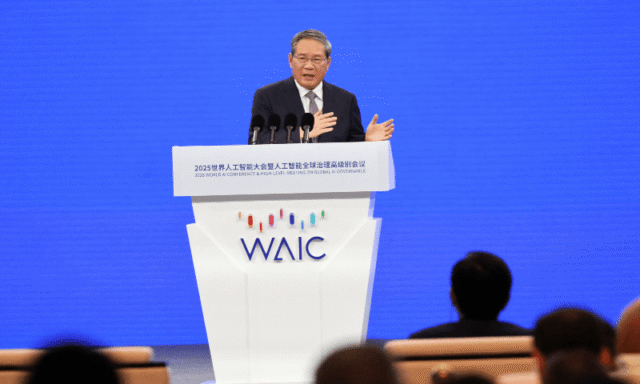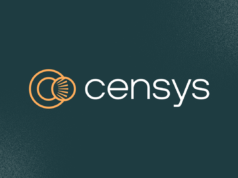At the recently-concluded meeting of Asia‑Pacific Economic Cooperation (APEC) (APEC) in Gyeongju, South Korea, Xi Jinping announced a bold move: the establishment of a global body to govern artificial intelligence (AI). According to multiple news outlets, President Xi suggested the creation of a “World Artificial Intelligence Cooperation Organization” (WAICO), which would set governance rules, foster multi-national collaboration, and aim to treat AI as a public good for all nations.
The Chinese leader went further to assert that AI should “benefit people in all countries and regions,” underscoring its importance for future development. China also floated Shanghai as a possible home base for this proposed organisation.
From the vantage of Nigeria and Africa more broadly, this development signals a shift – one in which a major global player seeks to reshape how technology is governed. The question now is: what will this mean for nations outside the immediate China-US axis, and how might emerging economies engage with this new architecture?
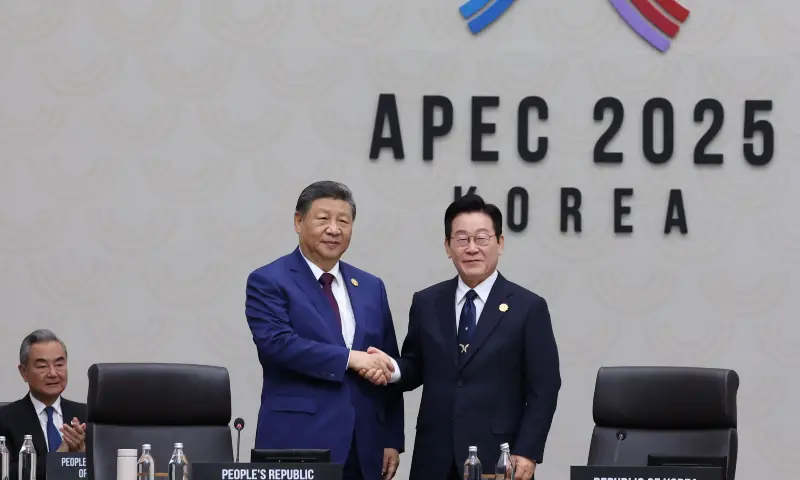
Table of Contents
Strategic Signals: Trade, Technology and Geopolitics
Beyond the headline of AI governance, Xi’s proposal carries additional strategic weight. At the APEC summit, China appeared to position itself as an alternative to the United States in trade and technology cooperation. According to Reuters, the proposal comes as the U.S. has rejected efforts to regulate AI via international bodies.
China’s push aligns with its broader vision of “algorithmic sovereignty” — developing home-grown AI capabilities (for example via Chinese developer DeepSeek) while lowering dependence on U.S.-based firms like Nvidia.
Moreover, the Chinese delegation urged APEC members to facilitate the free circulation of green technologies — from batteries to solar panels — which are sectors China importantly dominates.
For African players, this signals a double opportunity: one, to tap into emerging frameworks for AI governance; and two, to engage with trade and technology flows that may be shaped more by China’s preferences. It’s therefore vital for Nigeria and other African nations to track how this evolves.
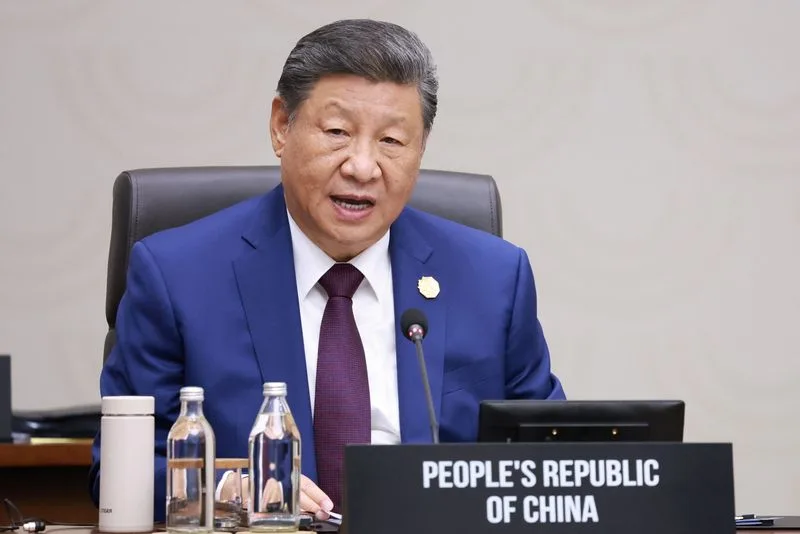
What Are the Implications for Emerging Economies?
From Lagos to Abuja, this global pivot in AI governance raises immediate questions. Let’s break them down:
- New Governance Standards – If WAICO or a similar body takes root, developing economies will face new layers of rules and standards on AI development, deployment and use. China frames its proposal as enhancing cooperation and closing the digital divide across the Asia-Pacific region.
- Technology Access & Equity – China emphasises that AI should not become “an exclusive game for a few countries and companies.” For Nigeria, this suggests that the emerging framework may either open new doors (access to capability, partnerships, funding) or present risks (governance burden, dependency issues).
- Trade & Investment Flows – The Chinese occupation of green technologies and domestic AI models means countries in Africa, including Nigeria, may receive offers of cooperation with Beijing as an alternative to Western models. But that potentially means aligning with China’s standards and diplomatic frameworks.
- Geopolitical Diversification – For Nigeria and its neighbours, the shift means they may find themselves with a broader set of governance and trade options (e.g., a China-shaped AI governance system rather than a U.S.-led one). But they’ll also need to maintain flexibility.
- Capacity Building Need – As AI governance frameworks evolve, emerging economies must focus on building local capability — digital literacy, regulatory expertise, skills in data and algorithm oversight. China’s statement explicitly referenced enhancing literacy and bridging the AI divide.
Challenges, Questions and What Comes Next
This is a large-scale idea, and of course, many details remain unclear. For Nigeria and other African nations, there are key questions to ask:
- Membership, Governance & Representation: Who gets a seat at WAICO (or its successor)? Will the Global South have an equal voice?
- Standard Setting & Enforcement: What happens when a rule is broken? How will disputes be settled, especially across jurisdictions?
- Coordination with Existing Bodies: There are already other global AI initiatives and coordination forums (for example at the UN level). How will this new organisation interact with them?
- Trade, Data Flows and Sovereignty: How will data, algorithms and intellectual property flows be regulated? Will countries like Nigeria have to choose between U.S.-aligned, China-aligned or other frameworks?
- Implementation Timeline: China suggested the organisation could be based in Shanghai, and the next APEC summit is to take place in Shenzhen in 2026, which may be used to further shape the agenda.
For Nigeria, this means the time to prepare is now: investing in regulatory infrastructure, engaging in global dialogues, and building domestic expertise in AI governance. There’s a window of opportunity to influence how these frameworks evolve, rather than simply adapting afterwards.
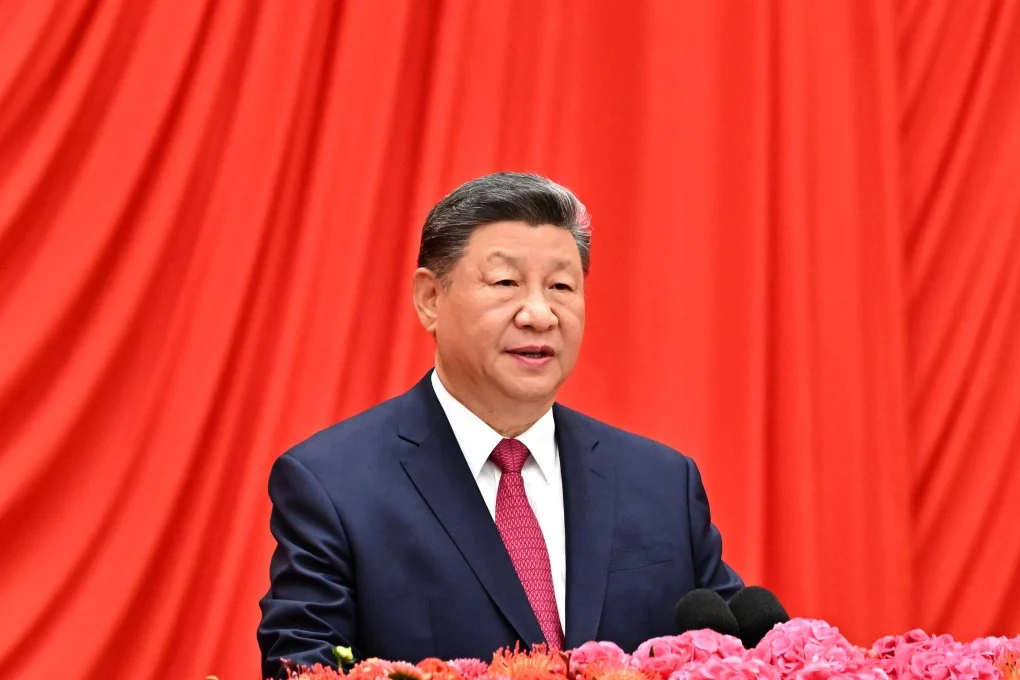
Conclusion: A Moment for Strategic Engagement
In my years covering technology policy and global governance, I’ve rarely seen a moment where we may be witnessing the birth of a global body whose scope so directly intersects trade, technology and national development. President Xi’s proposal at the APEC summit is not just a speech — it is a strategic signal.
For Nigeria and Africa, this is a call to engage rather than observe. Whether this new AI governance model becomes a dominant force or one of many frameworks remains to be seen—but the early mover advantage lies with those who prepare.
In the months ahead, I’ll be watching closely how this initiative plays out in diplomatic corridors, technical working groups, and regional forums. For Nigerian policymakers, academia and tech entrepreneurs alike, it means putting AI on the development agenda: not just as a tool, but as a domain requiring governance, strategy and foresight.
Join Our Social Media Channels:
WhatsApp: NaijaEyes
Facebook: NaijaEyes
Twitter: NaijaEyes
Instagram: NaijaEyes
TikTok: NaijaEyes


